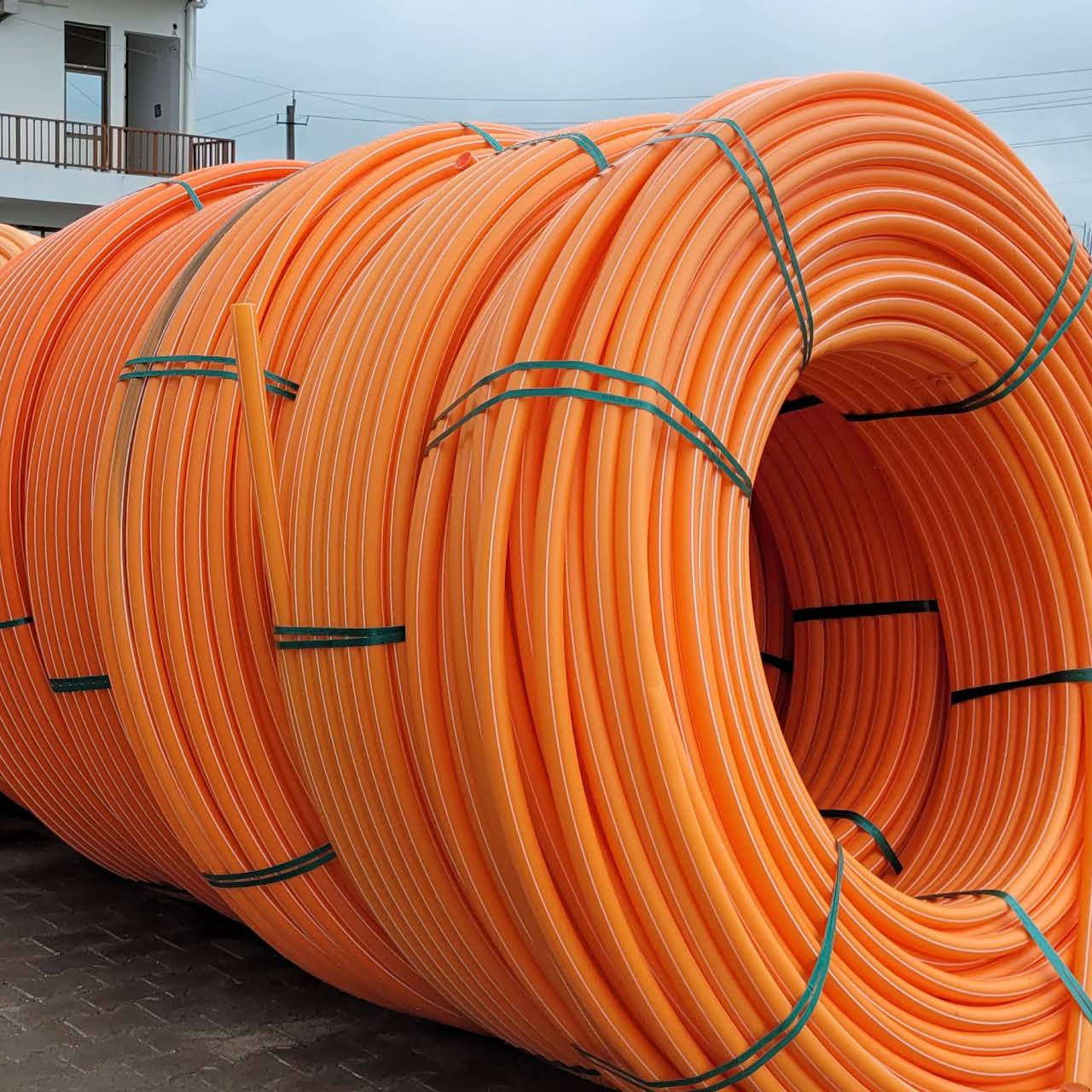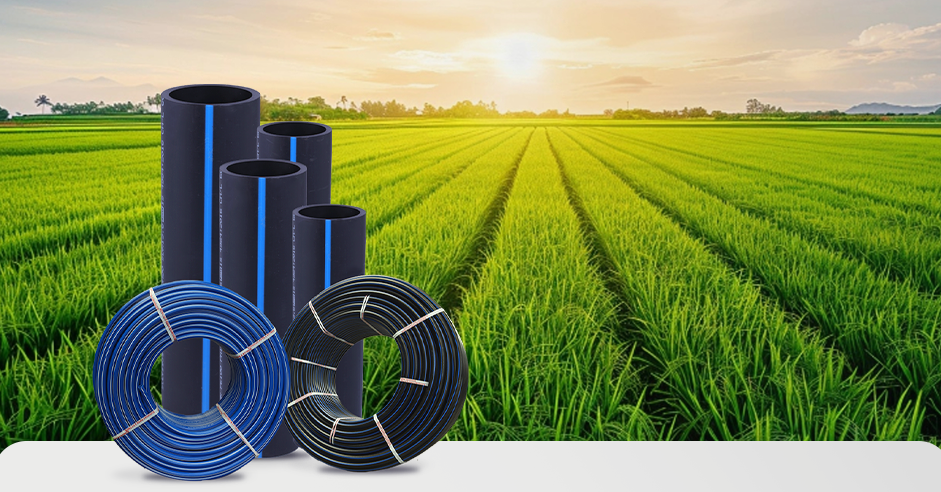Why Partnering with Pipe Supplier American Plastics Midland Ensures Trusted Solutions
Wiki Article
Comprehending the Secret Benefits of HDPE Pipeline for Water and Wastewater Management
The use of HDPE pipe in water and wastewater management offers many advantages that warrant consideration. Its phenomenal toughness and lengthy lifespan make it a recommended choice for several projects. Furthermore, the material's resistance to rust and chemical damages boosts its integrity in different settings. The benefits expand past simply longevity and resistance. American Plastics HDPE Pipe Manufacturing. Discovering its cost-effectiveness and ecological effect reveals much more compelling factors for its widespread fostering in modern-day infrastructureExceptional Sturdiness and Longevity

HDPE pipeline attracts attention for its outstanding toughness and long life, making it a favored choice in water management systems. Constructed from high-density polyethylene, these pipes can endure substantial pressure and anxiety, making certain trusted efficiency with time. Their robust nature permits them to withstand extreme ecological problems, consisting of temperature level variations and soil movements, which can trigger other products to fail.
The life-span of HDPE pipes usually goes beyond half a century, supplying an affordable remedy for districts and sectors alike. Furthermore, the product's lightweight properties simplify setup, reducing labor prices and durations. This resilience minimizes the requirement for regular repairs or replacements, even more improving its financial appeal.
In water administration applications, the reliability of HDPE pipelines implies less interruptions and boosted service continuity, making them indispensable to sustainable facilities development. The mix of longevity and durability strengthens HDPE's duty as a cornerstone in efficient water administration remedies.

Resistance to Corrosion and Chemical Damage
While several materials give in to deterioration and chemical damage in time, HDPE pipelines display impressive resistance, making them optimal for different water administration applications. This strength stems from the molecular structure of high-density polyethylene, which is naturally non-reactive and does not corrode like steels or break down from exposure to extreme chemicals. Therefore, HDPE is highly effective in environments with aggressive compounds, such as wastewater systems that might consist of acids, bases, and organic solvents.
Furthermore, HDPE pipelines can withstand ecological factors such as soil acidity and saline problems, better enhancing their viability for diverse applications (Texas hdpe pipe manufacturer). Their capacity to maintain architectural integrity gradually reduces the danger of leaks and failures, which is vital in guaranteeing the safety and security and integrity of water circulation and wastewater administration systems. The resistance to rust and chemical damage significantly contributes to the total performance and longevity of HDPE piping remedies.
Cost-Effectiveness and Financial Benefits
When thinking about the monetary implications of water administration systems, the cost-effectiveness of HDPE pipelines becomes noticeable. These pipelines provide lower installation and maintenance prices contrasted to standard materials like steel or concrete. Their lightweight nature streamlines transportation and setup, leading to lowered labor expenses. Furthermore, HDPE pipes show a long lifespan, frequently going beyond 50 years, which converts to fewer substitutes and long-term savings.Additionally, the resistance of HDPE to deterioration and chemical damage decreases the demand for costly repairs and substitutes. The pipelines additionally support efficient water flow, minimizing power expenses related to pumping systems. By alleviating leakages and water loss, HDPE pipelines add to significant economic benefits for communities and markets alike. In general, the first investment in HDPE piping can generate substantial financial returns over the life-span of the water monitoring system, making it a sensible choice for lasting facilities advancement.
Ecological Sustainability and Lowered Impact

Convenience and Flexibility in Setup
As a result of their one-of-a-kind properties, HDPE pipes use amazing versatility and versatility in installment, making them ideal for a vast array of applications. Their light-weight nature permits simpler handling and transportation, reducing labor prices and installment time. HDPE pipelines can be bent and formed to fit numerous terrains and task needs, which is particularly click here valuable in challenging atmospheres.Additionally, their resistance to deterioration and chemical damage permits setup in diverse settings without the requirement for specialized safety coatings. The capacity to fuse joints creates a continuous, leak-free system, improving the general integrity and reliability of the installation. HDPE's adaptability additionally suits ground motion, minimizing the danger of damage in areas vulnerable to moving dirt. In general, these attributes make HDPE pipes not only flexible but additionally a recommended selection for water and wastewater monitoring systems.
Frequently Asked Inquiries
Exactly How Does HDPE Pipeline Contrast to PVC in Water Administration Applications?
HDPE pipeline supplies exceptional flexibility, resistance to corrosion, and durability compared to PVC. Its lighter weight helps with easier installation, while its lengthy lifespan decreases substitute prices, making HDPE a favored selection in water management applications.What Is the Life-span of HDPE Water Lines Under Normal Problems?
Under common problems, HDPE pipelines can have a lifespan ranging from 50 to 100 years. Their durability and resistance to deterioration add to their long-lasting performance in numerous applications, making them a reputable choice for framework.Are HDPE Pipes Recyclable After Their Solution Life?
Yes, HDPE pipes are recyclable after their solution life. Pipe Supplier American Plastics Midland. They can be processed and repurposed into new items, considerably lowering environmental effect and advertising sustainability within the industry, making them an environmentally friendly option for piping solutionsWhat Is the Setup Process for HDPE Water Lines?
The installment procedure for HDPE pipelines includes website preparation, trenching, pipe fusion or mechanical signing up with, backfilling, and pressure screening. Correct techniques guarantee a resilient and efficient system for moving water and wastewater effectively.Can HDPE Pipeline Be Made Use Of for Both Safe And Clean and Non-Potable Water Equipments?
Yes, HDPE pipelines can be utilized for both safe and clean and non-potable water systems. Their convenience, sturdiness, and resistance to corrosion make them suitable for different applications, making certain safe and reliable transport of water in various contexts.Report this wiki page